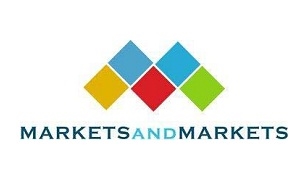The global Blockchain as a Service Market size is expected to grow from USD 632 million in 2020 to USD 11,519 million by 2026, at a Compound Annual Growth Rate (CAGR) of 62. 2% during the forecast period. Blockchain technology provides various benefits, such as traceability, smart contracts, and safe transactions. Traceability is a difficult and challenging task, which can be automated, simplified, and accelerated with the efficient use of blockchain technology and the corresponding electronic tracking technologies, such as Wi-Fi, Bluetooth Low Energy (BLE), and Radio Frequency Identification (RFID).
Download PDF Brochure: https://www.marketsandmarkets.com/pdfdownloadNew.asp?id=246499192
Increasing demand for BaaS due to COVID-19 outbreak, growing need for supply chain transparency across verticals, and rising demand for enhanced security are major growth factors for the market. Increasing integration of blockchain and IoT, and rising government initiatives would provide lucrative opportunities for vendors in the BaaS market.
By offering, Tools segment to hold the largest market size during the forecast period
BaaS tools are expected to observe a wide adoption during the forecast period as an increasing number of enterprises of all sizes are realizing the benefits offered by these tools. In this study, tools refer to a standalone BaaS platform that cannot be further segmented. BaaS tools in the market enable customers to set up private, public, and consortium-based blockchain environments and provide them with capabilities to develop their own blockchain applications and solutions. These tools enable people, products, applications, and services to interoperate across the blockchain network. The growing emphasis on compliance as well as government regulations across the insurance sector also fuels the adoption of BaaS solutions, especially in highly regulated regions, such as North America and Europe. Emerging regulations, such as General Data Protection Regulation (GDPR) and Global Cryptocurrency Regulation, are expected to further propel the demand for BaaS solutions during the forecast period. In addition to the strict governance and compliance policies, these tools further help enterprises avert risks through fraud and risk management applications and optimize their daily operations, leading to reduced operational costs.
Request Sample Pages: https://www.marketsandmarkets.com/requestsampleNew.asp?id=246499192
IBM (US), Microsoft (US), SAP (Germany), AWS (US), Oracle (US), Huawei (China), R3 (US), HPE (US), Accenture (Dublin), Wipro (India), Infosys (India), Bitfury (The Netherlands), Factom (US), LeewayHertz (US), Altoros (US), VeChain (China), Salesforce (US), OpenXcell (US), Oodles Technologies (India),and Blocko (South Korea).
These players have adopted various growth strategies, such as partnerships, agreements and collaborations, new product launches and product enhancements, and acquisitions, to expand their presence in the BaaS market. Partnerships, agreements and collaborations, and new product launches have been the most adopted strategies by the major players from 2018 to 2020 to innovate their offerings and broaden their customer base.
IBM was founded in 1911 and is headquartered in New York, US. The company is a computer, technology, and IT consulting corporation. It is the worlds largest technology company and the second-most valuable company. For BaaS, IBM provides the IBM Blockchain Platform, IBM Blockchain Support, and Business Consulting and Industry Expertise. The IBM Blockchain Platform is a cloud-based blockchain-as-a-service, created with the help of Hyperledger Composer and Hyperledger Fabric. It enables organizations to govern, develop, and operate their network through a distributed ledger, ensuring the ease-of-use and high security. The platform caters to many industry use case scenarios, including supply chain, financial services, automotive, real estate, food safety, identity, and international trade.
Microsoft was founded in 1975 and headquartered in Washington, US. It develops and supports software, services, devices, and solutions. Its product offerings include Operating Systems (OS), cross-device productivity applications, server applications, business solution applications, desktop and server management tools, software development tools, and video games. For BaaS, Microsoft offers NovaTrack, BaaS Platform, and Blockchain Workbench. NovaTrack is Microsoft’s new track and trace-based platform that works on blockchain, AI, IoT, and serialization functionalities to ensure end-to-end visibility and traceability across the supply chain. The Microsoft BaaS platform is built on an open, trusted cloud platform that works with the ledger of the client’s choice, including Azure Blockchain Service, BlockApps STRATO, as well as Blockchain Foundry Syscoin, and provides a collection of ready-to-deploy ledger and tools within the Microsoft Azure marketplace.
Media Contact
Company Name: MarketsandMarkets™ Research Private Ltd.
Contact Person: Mr. Aashish Mehra
Email: Send Email
Phone: 18886006441
Address:630 Dundee Road Suite 430
City: Northbrook
State: IL 60062
Country: United States
Website: https://www.marketsandmarkets.com/Market-Reports/blockchain-as-a-service-market-246499192.html

